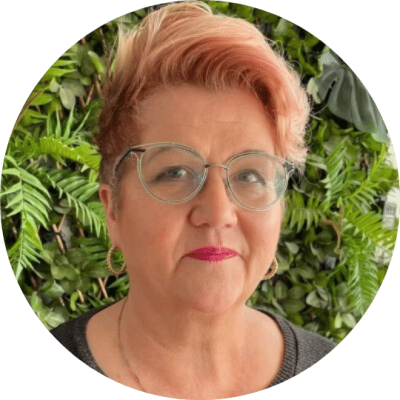Posted on 03 April 2025

Kate Russell, Executive Director of Hagar NZ(ONZM, FFINZ)
I’ve just celebrated my second year with Hagar. Previous to that I had been in the ‘For purpose’ sector for 30 years, leading various health and disability organisations. To be honest at the time I got the role I wasn’t ‘looking’ per se but the recruiter approached me and given that I had seen the good work of Hagar both through my church and because I knew the retiring Executive Director, I felt very drawn to the work. The opportunity to work in an international development cause was a once in a lifetime chance so I leapt at it.
What’s keeping you up at night? As a leader working to support survivors of trafficking, slavery, and abuse, what are the biggest challenges or opportunities you see ahead?
I believe we are all operating in the most challenging geopolitical environment in a generation. The shifting power in the Pacific, Trump, the war in Ukraine, Climate change. It’s very easy to become quite overwhelmed when the core of your organisation’s purpose is to solve some of the world’s most pressing humanitarian issues. I’m sure we are all ‘feeling it’ right now. I’m continually heartened to see the great work being done by all the organisations operating in the trafficking and slavery space, but we are facing significant headwinds because of the changing world order, poverty and the ease with which traffickers can utilise cyberspace to support their grim purpose. However, we all have to believe that if we address the causes and not just the symptoms, if we work to change the attitudes at community and government, duty-bearer levels, things have to change for the better.
Hagar NZ is committed to walking the whole journey with survivors. What’s one initiative or approach you’re particularly proud of right now that’s making a real impact?
I believe our biggest opportunity now is to empower our survivor alumni as leaders in their own communities. Giving them a voice to spread our messages, warn, educate and protect others from the harm that they suffered. I’m excited to see where our own survivor leadership programme goes in the next few years.
With shifts in global aid funding and donor priorities, how is Hagar NZ adapting to ensure long-term sustainability for its programmes?
Globally, Hagar International are working on diversification of funding. Traditional, large scale funders are harder to gain success from now. For Hagar NZ we have a loyal, committed base of donors and our regular donor programme is a very important part of our overall funding strategy. Hagar will look to expend its fundraising to countries we have not reached before, with a higher degree of global campaigns and more incursion into new social media markets. We are very lucky to have so many very experienced fundraisers on staff.
‘Locally-led development’ is a key focus in the sector. How does Hagar NZ work to empower local leadership and ensure survivors are at the heart of decision-making?
All of our programme offices are staffed and led by local people. We long ago let go of having ex-pats going into country and ‘doing for’ as opposed to ‘doing with’. As above, we are putting significant resource into survivor leadership across the board. Our teams in all countries where we operate are in demand to train and upskill local government, police and justice.
If you could change one thing about how the world responds to human trafficking, slavery, or abuse overnight, what would it be?
The first step is recognising just how widespread it is. When I speak in public about it, so many are shocked at the numbers. They simply have no idea that slavery even still exists to the extent that it does. Awareness is the key.
What’s your message to the next generation of development and humanitarian leaders, particularly those working in protection and survivor support?
Listen to your survivors. Empower them to speak and to have influence about what you do and how you do it.
As a member of the Council for International Development, what value do you find in being part of this network, and how does CID support Hagar NZ’s work?
I always find being with my peers energising. Networking and learning from those far more experienced than I am, so I always find meetings to be very useful. I believe the advocacy for the sector’s interests as a whole is very valuable.
